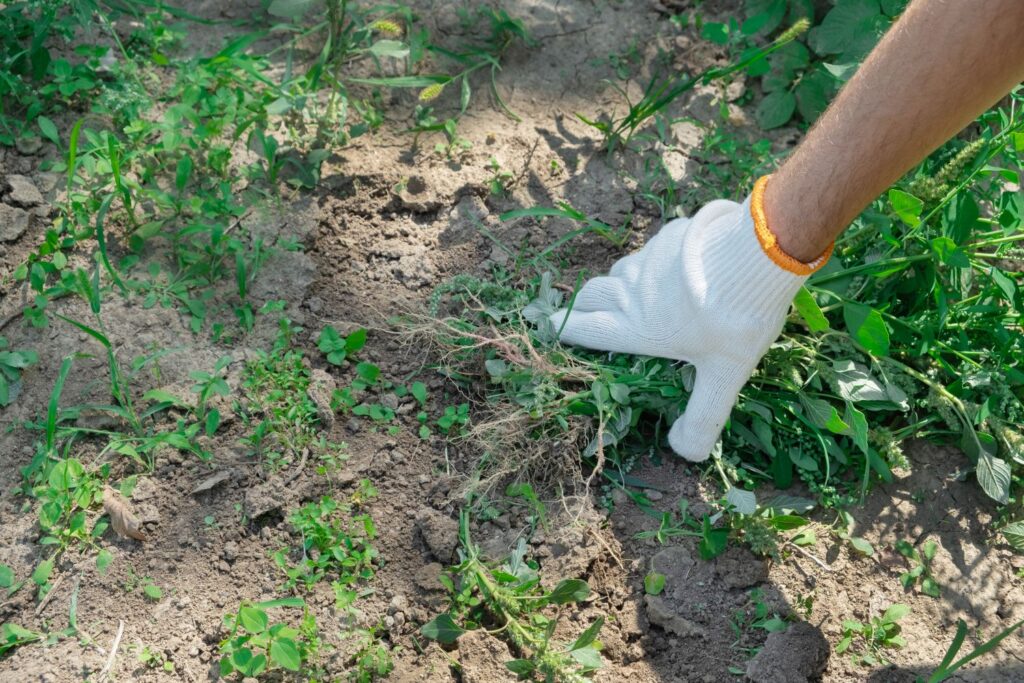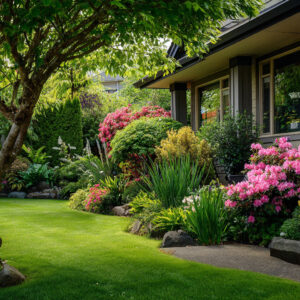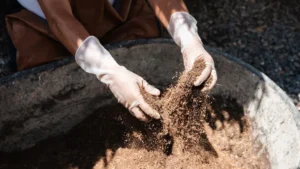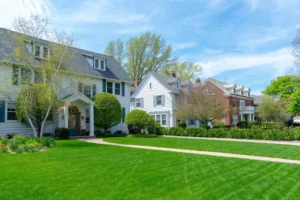These days, “organic” is everywhere we turn: in the produce aisle, cleaning cabinet, and even on your lawn! Homeowners in Atlanta who want to use a non-toxic approach to lawn care are often drawn toward organic weed control. After all, who would not want a safe and eco-friendly option for their lawn that is gentle on pets, children, and the earth?
However, that is the catch: organic weed control can be unpredictable when it comes to battling Atlanta’s relentless weeds. At Weed Pro, we believe you should have the whole lawn story. While organic weed control may seem ideal in theory, there is so much more you do not know that is happening beneath the turf.
Let’s dig in!
What Exactly Is Organic Weed Control?
In the simplest way to explain it, organic weed control means using methods or ingredients that are non-synthetic to stop or eradicate unwanted plants. This could mean:
- Some homemade weed killer recipes could be vinegar, salt, or soap
- A non-toxic spray that uses clove oil or citric acid
- Cultural practices that involve mulching, hand-pulling, or solarizing soil
Those are a few organic weed control methods, and regardless of which organic product you use, they all rely on product ingredients that will suppress weeds, but not eliminate weeds.
Atlanta Lawns Face a Different Beast
Let’s face it, Atlanta lawns are not dealing with only dandelions; they are dealing with crabgrass, clover, nutsedge, chickweed, and many more! You have plenty of growing opportunities with our warm, humid environment and longer growing season, resulting in your lawn weeds growing, spreading, and taking over faster than you can say ‘mulch it!’
Sadly, battling Georgia weeds with organic means may not stand a chance against the speed and strength of the weeds. That is where the results begin to deviate—and the frustration sets in.
Why Results Vary With Organic Weed Control
1. Inconsistent Weed Results
Several natural solutions may effectively eliminate one species but are ineffective against others. For example, vinegar sprays may kill back chickweed—but it does nothing to combat crabgrass or deeply rooted dandelions.
Because organic weed killers tend to work on the surface of the plant, the weed killer rarely kills the root and leaves. That means that crabgrass can return later or resprout after a rain.
2. Repeat Applications Needed
Do not expect the one and done experience with organics. Most non-toxic weed sprays have to be applied multiple times (potentially weekly and/or after every rain) to remain effective, and even then, the results can diminish quickly without some level of consistency. For busy Atlanta homeowners, that adds up to a lot of spraying.
3. Limited Spectrum of Control
Unlike synthetic herbicides that can be selective (e.g., only target broadleaf weeds), few or no organic options are selective. In practical terms, if I hit my turf with vinegar or clove oil, I can potentially harm the grass I am trying to protect.
This complicates a spot treat when a lawn is weed infested. If you are keeping a lawn healthy, there is always a risk of harming it trying to protect it.
4. Soil and Lawn Health Matters
Typically, organic treatments are heavily reliant on healthy lawn and soil. If your soil pH is poor or your grass isn’t thick and healthy, weeds could settle in much quicker than you can eliminate them. This is why many organic options only work when paired with longer term options such as:
- Core aeration
- Overseeding
- Regular mowing and watering
- Fertilizer (Organic or synthetic)
If your grass is thin or patchy even the safest organic weed control options are not going to rely stay around.
Pros and Cons of Organic Weed Control in Atlanta
Let’s break it down:
| Pros | Cons |
| Safer for pets and kids | Results vary depending on weather and weed |
| Environmentally friendly | Requires frequent reapplication |
| DIY options available | May damage grass if not carefully applied |
| No chemical residue in runoff | Doesn’t address root systems |
| Great for small or light infestations | Not ideal for heavy weed pressure |
When It Might Work Best
That being said, organic weed control isn’t totally erased. You may find a little success if you have one or two of these items:
- Small lawn or garden bed and a manageable number of weeds
- You are willing to manually tend to the weeds, such as pulling and mulching
- You may apply organic weed control in combination with other lawn strategies for health approaches
- You have areas where chemicals isn’t favorable to use (i.e. Near vegetables, or play areas).
The important part is knowing the limits of your lawn and the amount of time you can put into it going forward.
What About DIY Organic Weed Control?
If you ask around, read blog posts, read Yelp reviews on homemade weed killer recipes, or take tips from Pinterest, you will have more options than you ever need. Some common ones you will hear about are:
- Vinegar + salt + dish soap
- Boiling water
- Corn gluten meal as a pre-emergent
- Essential oils sprays
These might work as a spot control on challenges or along sidewalk edges, but in a lawn for a longer-term control plan, they have yet to be strong enough to become a long-term solution against the weed population here in Atlanta, especially in the early, subtle growing season.
Let Weed Pro Help You Choose the Right Plan
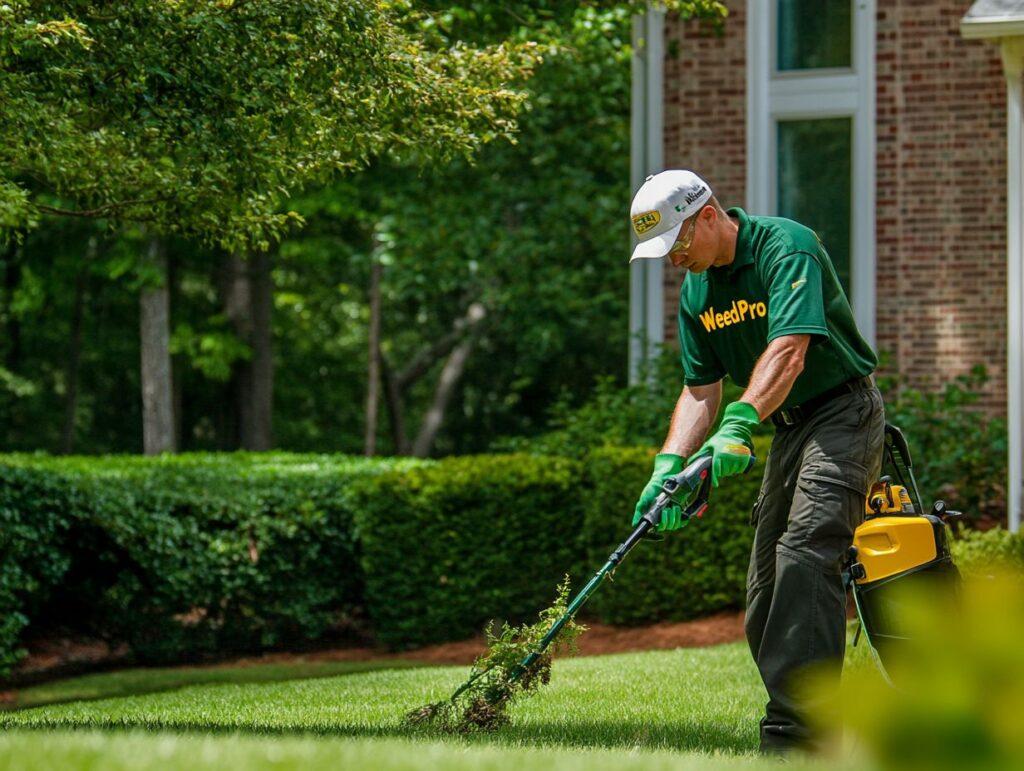
If you are feeling overwhelmed with your Atlanta lawn weed plan, don’t worry, we have your back. Our team does not try to sell you a solution that fits all services. We will work to understand what your lawn is like, what you want to achieve, what you have time for, and what outcomes you would like to see.
Do you want to go as natural as possible? We will assist you in creating a plan and mapping out what is truly achievable over time. Need some stronger results for your current weed-ridden lawn? We got you! With Weed Pro, we will provide you with the true facts, offer a strategy, and share treatment tips that align with your beliefs.
👉 Schedule a weed control and assessment, and we will work out a plan to get your lawn back in tip-top shape and accomplish realistic, natural, or synthetic options.
🌱 FAQ: Common Questions About Organic Weed Control in Atlanta
Are there any Atlanta-specific weeds that respond well to organic treatments?
Yes, but only a few. Chickweed and small patches of clover can sometimes be suppressed with vinegar-based solutions or mulching. However, more aggressive weeds like crabgrass, nutsedge, or dallisgrass tend to resist organic treatments, especially when established.
Can you combine organic weed control with insect or fungus treatments?
Absolutely—but with caution. Some organic weed products may interact with biological insecticides or natural fungicides, weakening their effects. It’s important to plan your application timing carefully, or better yet, work with a lawn care expert who can coordinate a safe and effective treatment calendar.
Is organic weed control a good option for shaded lawns in Atlanta?
Shaded lawns often grow thinner turf, making them more susceptible to weeds. Unfortunately, this also makes organic weed control less effective. Since shaded areas are already vulnerable, relying on weak treatments can allow weeds to quickly take over. A stronger, targeted approach is usually recommended.
👉 Up Next
We’ve tackled the weeds—now what about the bugs? Your next stop is: Liquid Aeration: The Smart Way to Revitalize Your Lawn’s Soil and Growth

